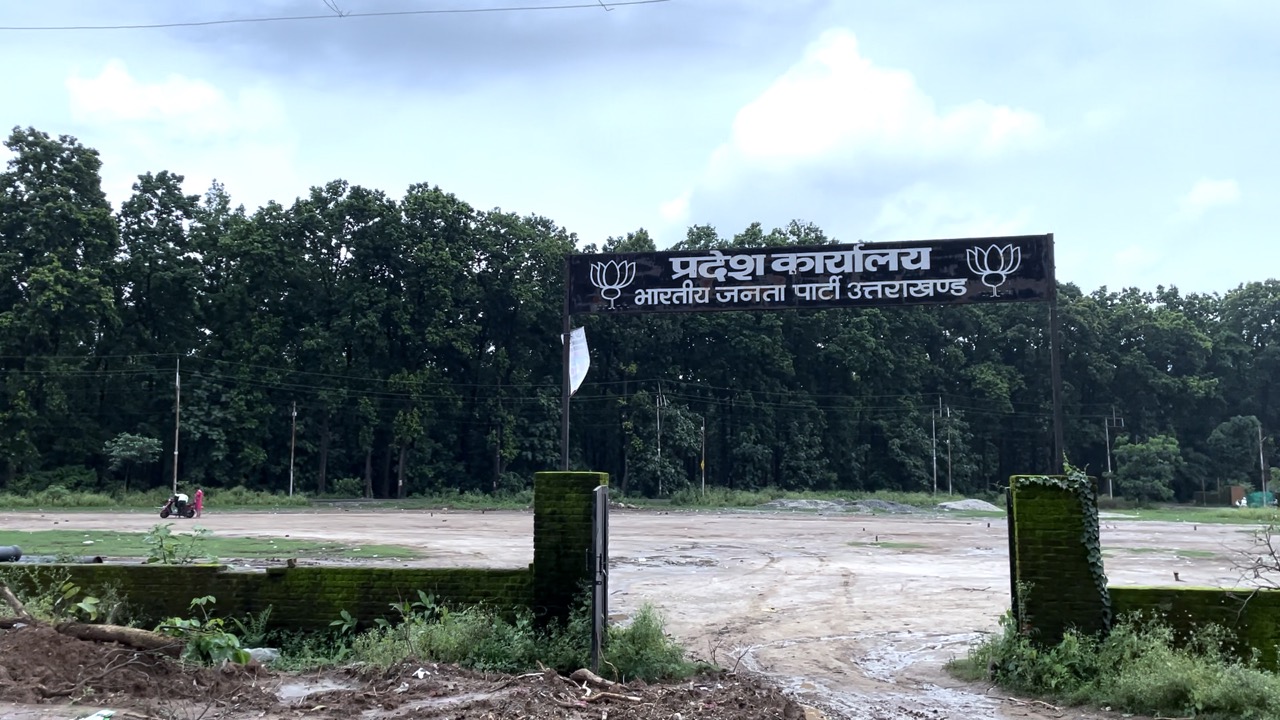DEHRADUN: After an activist alleged that the proposed Bharatiya Janata Party (BJP) headquarters in Ladpur village is on the land of tea gardens, the Congress has trained its guns on the ruling party and the government.
Karan Mahra, the state president of the Congress party, said, “The BJP has lied to get the NOC for the land for their new office in Ladpur. As per law, that land belongs to the government. The party and the state government have colluded to violate the rules. The government has even gone to the extent of violating the honourable Supreme Court of India.”
Dehradun-based activist and practising lawyer Vikash Negi has earlier alleged that more than 80 per cent of the 5,500 bigha land of tea gardens has been encroached upon by land sharks.
Negi, who has filed a public interest litigation (PIL) in the matter in the Uttarakhand High Court, told The New Indian, “The land was part of the tea gardens which were purchased by the BJP in 2011. According to the rules, the land should be vested in the state government and not belong to any political party or an individual. The ruling party in the state is itself indulged in such violations of the act made by the legislature, then a wrong precedent is portrayed for the general public and common citizens.”
In his PIL, Negi has alleged that the sale deeds that have been executed are in direct violation of the law and the SC order.
Mahendra Bhatt, the state BJP president, commenting on the issue, said, “The matter is in the high court now. We will abide by the HC orders.” “Congress has this habit of creating unnecessary controversy,” he added.
The tea gardens came into existence in the city in the 1960s after the Uttar Pradesh Imposition of Ceiling on Land Holdings Act, 1960, prohibited land holdings of over 12.5 acre by one person. The owners of the land planted tea to save their land from being acquired by the government.
In October 1975, a government order was issued by the then Uttar Pradesh government stating that all sale deeds after October 10, 1975, would be “void”.
Following this, in 1996, the Supreme Court upheld the government order concerning the sale deeds of tea gardens’ land post-1975.
According to the amendment in the Ceiling Act, the land of the tea gardens cannot be used for any other purpose, including agricultural, plantation, or any kind of construction.
In the meantime, over 80 per cent of the land of these tea estates in and around Dehradun has been used for residential purposes, building colonies and homes.
The Supreme Court in 1996 held that any such land, if used for any other purpose, will be transferred to and “shall vest in the State Government free from all encumbrances and all rights, title and interest of all persons in such land shall stand extinguished”.










